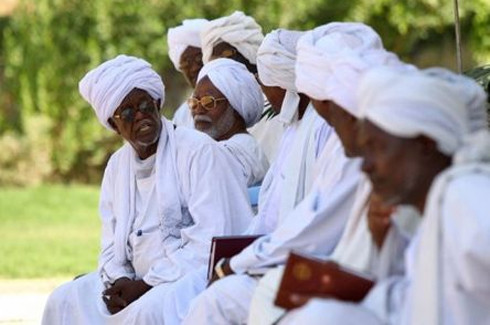The prominent Misseriya leader Mohammed Omer al-Ansari revealed that tribal leaders declined a proposal made by Princeton Lyman, the special envoy of the US president.
According to al-Ansari, the proposal was to give Misseriya rights to graze their herds in Southern territory and to be involved in the executive and legislative positions in the South Sudan government in Abyei, while having dual citizenship.
These concessions would come in exchange for agreeing that they have no right to vote in the referendum on whether to annex Abyei to South Sudan. According to the African Union proposal, prepared by mediator Thabo Mbeki and his team, the referendum would take place in October 2013.
Lyman’s meeting with al-Ansari coincided approximately with an announcement by the US Embassy in Khartoum of “$3.8 million in resources to support the rehabilitation of key water yards,” in Abyei, where Misseriya graze their cattle seasonally. The funds would also be used for schools in Abyei town and “other services.”
It was reported that Lyman said that he believes that the interest of the Misseriya is actually more with South Sudan than with Sudan, with regard to Abyei. Lyman also encouraged the Misseriya to accept the proposal of South African mediator Thabo Mbeki, which al-Ansari strongly rejected.
The envoy is previously on record as having called the Mbeki proposal “genius” because it “almost makes the referendum irrelevant” by conferring political and economic rights on both Dinka and Misseriya communities regardless of the outcome of the poll.
Lyman is also reported to have explained that he made his visit on the recommendation of his former teammate Scott Gration, the previous envoy, to discuss the issues concerning peaceful coexistence between the two tribes of Misseriya and Dinka Ngok.
According to the embassy statement, issued Monday, “US officials have made multiple trips to Abyei over the past few months and, in consultation with all parties, identified several targeted, small-scale interventions that will address urgent infrastructure gaps. These projects will support needed access to water and other critical services and are designed to mitigate potential conflicts during the dry season and foster continued political progress.”
The US aid agency has previously supported similar work in western Kordofan, just north of the Abyei area, building wateryards and other infrastructure.




